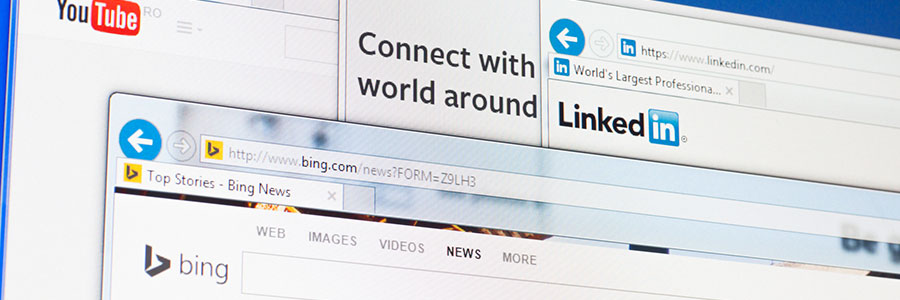You may not know it, but some of the websites you visit or apps you download leave a trackable digital footprint. One step you can do to avoid leaving your online behavior exposed to third parties is to use private browsers to surf the internet.
What is private browsing?
Your web browser — whether it’s Chrome, Edge, Firefox, Safari, or Opera — stores the URLs of the sites you visit, cookies that track your activity, passwords you’ve used, and temporary files you’ve downloaded.
How can private browsing protect your online privacy?

Which web browser is the most secure?

Enterprise cybersecurity is a holistic system that involves employing security practices at every level of use. This includes picking out the most secure web browser. Consider the security features of these popular web browsers when picking yours.
Microsoft Edge
Microsoft Edge, Windows 10’s current default browser, is an improvement over its predecessor Internet Explorer (IE). Edge is based on the open source Chromium browser, resulting in a powerful and efficient browser that supports Progressive Web Apps and Google Chrome extensions.
Can private browsing keep you safe?
Here are 6 Firefox features you should be using

Firefox is one of the most versatile web browsers today and its potential uses only grow with each new version. Not only is it great for casual browsing, but it also has a selection of tools that are valuable in business. Here are some of the functions you should be using in Firefox:
Firefox’s secret tweak interface
Catering to the more tech-savvy users, Firefox’s secret interface gives you a peek behind the curtain into the world of coding.
How to pick the most secure browser

The internet is a Wild West of sorts, as one could never know what kind of threat they’ll come across. This is why for businesses, it’s important to identify secure browsers to keep threats at bay.
Microsoft Edge
Microsoft Edge, Windows’ current default browser, is an improvement over its predecessor Internet Explorer (IE). Edge was developed with Windows 10 integration and IE end-of-life in mind, resulting in a powerful and more efficient browser that has Cortana (Windows’ answer to Alexa and Siri) integration and Microsoft Store extensions.
Invaluable tips for online safety

Let’s be honest, surfing the net in the comfort of your home or with the privacy of a small screen feels safe. However, certain sites could be snooping on your online activity by placing digital trackers called “cookies” on your devices. Here’s what happens to your personal details whenever you go online.
Which web browser do you prefer?

To access the web when the internet was in its infancy, computer users could only choose between Netscape Navigator or Internet Explorer. Thanks to advancements in technology, people can now do their work in a browser. If you’re looking for an alternate way to surf the web, our list below will have an answer for you.
Get the most out of Bing’s Visual Search
Biometrics Authentication for Mobile Devices
What private browsing can and can’t do

As you surf the web, it’s nearly impossible to keep your internet activity completely private. Certain websites collect personal information for marketing purposes and your browser keeps track of all the websites you visit. But that browsing information can also fall into the wrong hands, which is why you should consider using private browsing if you want to keep your online activities to yourself.
- 1
- 2


